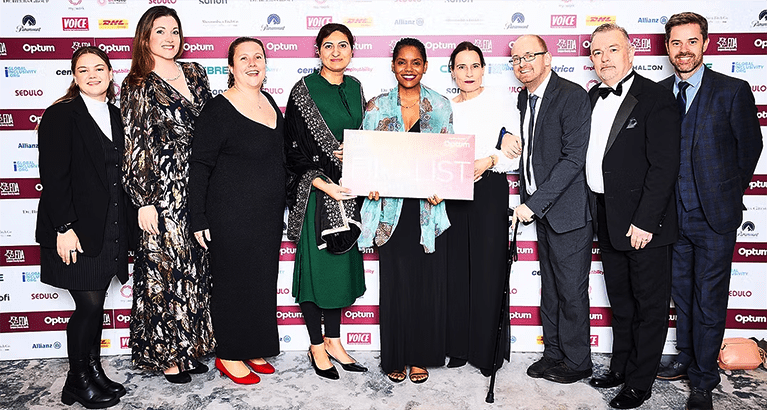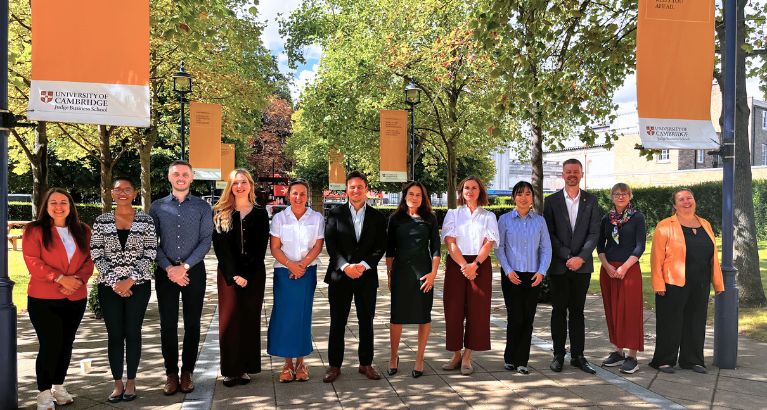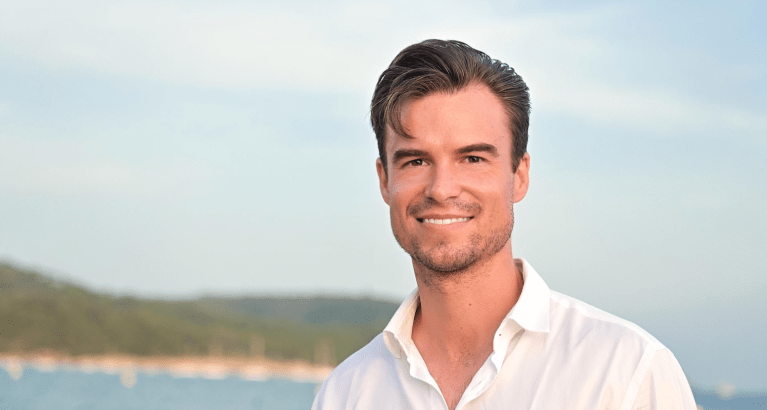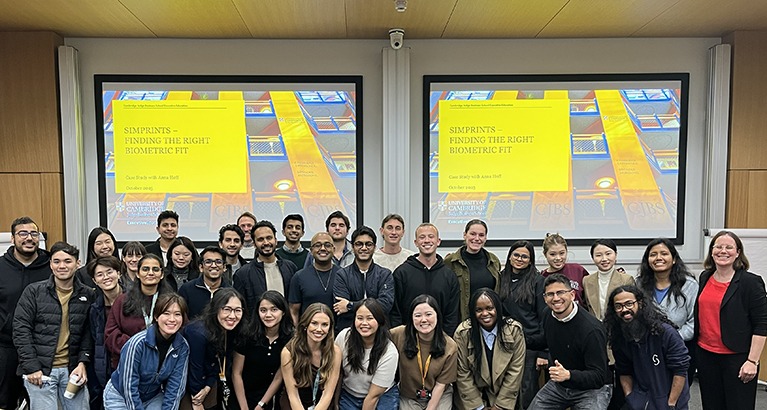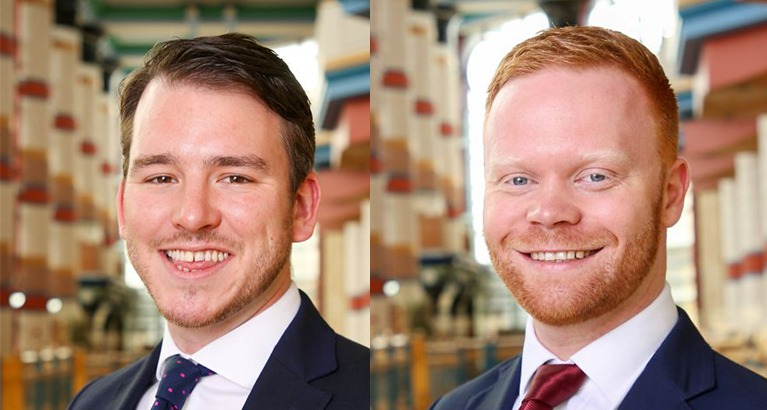Executive MBA participants at Cambridge Judge Business School regularly feature in the headlines with world-leading innovations. Hear the latest news from our alumni.
Programme news
The Executive MBA (EMBA) team at Cambridge Judge Business School was named Diversity Team of the Year at the 2025 European Diversity Awards, which celebrate individuals and organisations leading the way in diversity, equity and inclusion.
Gain insights into the International Business Study Trip. From strategy sessions to street food, the Global EMBA cohort’s week in Bangkok blended academic rigour with real-world insight. Students tackled globalisation challenges, met industry leaders, explored Thailand’s innovation scene and soaked up the country’s rich culture – all in one unforgettable study trip.
The Cambridge Judge Executive MBA team is a finalist for EDA 2025 Diversity Team of the Year, recognising its inclusive curriculum, culture and leadership in advancing equality, diversity and inclusion.
Career news
Student and alumni news
Startup lessons turned into a founder playbook
Learn how Cambridge Executive MBA graduate Massimo Schäppi turns a decade of startup lessons into ‘Gründen ohne Umwege’, a playbook for founders from idea to investment.
Student and alumni news
EMBA graduate returns to teach sustainable development
Executive MBA alumna Anna Hoff (EMBA 2019) co-wrote a case study on how company Simprints could best scale up to provide vital records to more people in developing countries around the world. She returned to guest lecture in Professor Matthew Grimes’s class, outlining the difficult choices facing young firms in scaling up responsibly.
Programme news
EMBA alumni on entrepreneurship and the Cambridge difference
Executive MBA alumni Ben Saward and Josh Neely reveal how Cambridge’s EMBA and Silicon Fen ecosystem fuelled Novi GP’s launch. Discover how key courses and cohort networks helped forge their entrepreneurial edge.


